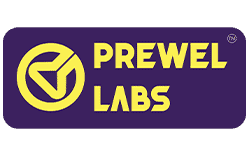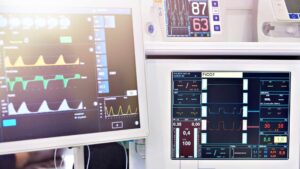Pharmaceutical Testing FAQs
Methods of quality control in the pharmaceutical industry
Quality control in the pharmaceutical industry involves various methods, including chemical analysis, chromatography, spectroscopy, microbiological testing, and stability testing. Our pharmaceutical testing services employ these methods to ensure that products meet specified quality standards and regulatory requirements.
Quality control techniques in the pharmaceutical industry
Quality control techniques in the pharmaceutical industry encompass a range of approaches, including statistical process control, validation studies, analytical method validation, and risk assessment. Our pharmaceutical testing services utilize these techniques to monitor and improve the quality of pharmaceutical products.
What are the FDA Guidance for Testing Pharmaceuticals?
The FDA provides guidance for testing pharmaceutical products, emphasizing compliance with regulations such as Current Good Manufacturing Practices (cGMP). Our pharmaceutical testing services align with FDA guidelines to ensure that testing processes meet regulatory expectations and standards.
What are Quality management systems in the pharmaceutical industry?
Quality management systems in the pharmaceutical industry are essential for ensuring product quality and regulatory compliance. Our pharmaceutical testing services support quality management through documented procedures, training, process validation, and continuous improvement to maintain high-quality standards.
What are the challenges of pharmaceutical testing?
Challenges of pharmaceutical testing include complexity in analytical methods, evolving regulatory requirements, sample variability, and technology advancements. Our pharmaceutical testing services are designed to address these challenges, providing accurate and reliable results despite the complexities of testing procedures.
What are the different stages of pharmaceutical testing?
The different stages of pharmaceutical testing include raw material testing, in-process testing, finished product testing, stability testing, and method validation. Our pharmaceutical testing services cover these stages comprehensively, ensuring the quality and safety of pharmaceutical products throughout the manufacturing process.
What are the GMP guidelines for quality control laboratories?
Good Manufacturing Practices (GMP) guidelines for quality control laboratories emphasize the need for documented procedures, calibration, validation, and personnel training. Our pharmaceutical testing services adhere to GMP guidelines, ensuring that quality control laboratories operate in compliance with regulatory standards.
How do I get a Certificate of Pharmaceutical Products?
Obtaining a Certificate of Pharmaceutical Products (CPP) involves submitting a request to the regulatory authority along with relevant information on the pharmaceutical product. Our pharmaceutical testing services support this process by providing the required testing data and documentation for CPP applications.
What documents are required to maintain pharmaceutical industry?
Documents required to maintain the pharmaceutical industry include batch records, standard operating procedures (SOPs), validation protocols, and testing certificates. Our pharmaceutical testing services contribute to the generation and maintenance of these documents to ensure compliance with industry regulations.
What are the equipment used in pharmaceutical testing?
Equipment used in pharmaceutical testing includes high-performance liquid chromatography (HPLC), mass spectrometry, spectrophotometers, microbiological testing instruments, and stability chambers. Our pharmaceutical testing services utilize state-of-the-art equipment to conduct a wide range of tests, ensuring accurate and reliable results.
What types of samples do you accept?
At PreWell Labs, we welcome various pharmaceutical samples, including raw materials, finished products, intermediates, and active pharmaceutical ingredients (APIs), spanning different dosage forms such as tablets, capsules, liquids, creams, ointments, powders, and injectables. What kind of tests you perform for pharmaceutical products?
Can I request additional testing based on my results?
Absolutely, at PreWell Labs, you can request additional testing based on your results. We understand the importance of thorough analysis and are committed to accommodating specific testing requests tailored to your needs.
What regulatory bodies do you comply with?
PreWell Labs adheres to regulatory standards set forth by reputable bodies such as the Food and Drug Administration (FDA) in the United States, the European Medicines Agency (EMA) in Europe, and other pertinent international regulatory agencies. Our operations strictly adhere to current Good Manufacturing Practices (cGMP), and we follow guidelines outlined in pharmacopeias such as the United States Pharmacopeia (USP) and European Pharmacopoeia (Ph. Eur.).
What happens if my results are outside of specifications?
In the unlikely event that your results fall outside of specifications, PreWell Labs initiates immediate investigations to determine the root cause. We follow established protocols for handling such occurrences, ensuring that corrective actions are taken promptly and transparently.
What are your data security and confidentiality policies?
PreWell Labs places paramount importance on data security and confidentiality. We have robust policies and procedures in place to safeguard all sensitive information related to your samples and testing results. Confidentiality agreements are standard practice, and we utilize state-of-the-art encryption methods to uphold data integrity and privacy.





